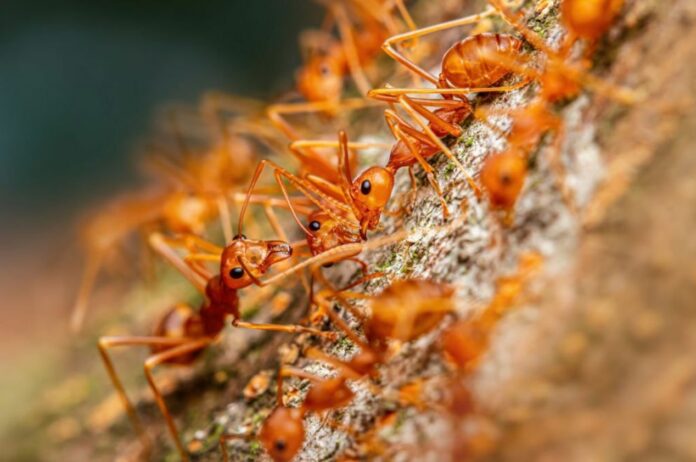Ants are examples of ectotherms or creatures whose core temperature varies with their surrounding temperature.
Even though these creatures often encounter a variety of temperatures, most ectotherms prefer environments that are a little colder than the so-called optimum operating temperature, which is the range of temperatures at which an ectothermic animal can best carry out all of life’s activities.
If an ectotherm is exposed to temperatures over its comfort level, it might reach a point in its physiology where it would die.
In other words, ectotherms will die if it gets too hot.
However, nothing is known about how or whether insect ectotherms may modify their behavior to avoid higher but sublethal temperature ranges, which are becoming more and more common as a result of global climate change and where functioning is physiologically viable but not desirable.
Five typical North Carolina ant species were analyzed by NC State scientists in order to understand more about how insect species may react to these sublethal, higher temperatures.
In order to determine the distribution of accessible microhabitats, they counted and gathered ants in forest ecosystems while also measuring the air temperatures at the collection locations.
The temperature of the ants themselves was also measured by the researchers using a special ant thermometer (which varied by ant color and body size).
Finally, the researchers brought in several ants of each species and kept them in a rectangular box with a regulated temperature gradient to ascertain their individual preferences.
The researchers discovered that although ants in the lab had different temperature preferences, ants in the field were just marginally more active in their favorite climates than would be anticipated by chance.
Instead, the majority of species were taken from warmer-than-preferred locations, indicating a lack of knowledge or an inability to adapt to rising temperatures.
“It’s interesting that the worker ants we observed were willing to put themselves in uncomfortable situations while foraging,” points out co-author Sara Prado.
“I wonder if the food was ‘profitable’ enough for the ants to stretch their comfort levels, or if they are simply willing to sacrifice their well-being for the sake of the colony.”
“Warmer times and places make warmer ants, and they’re not adjusting their activity to match their preferred conditions,” adds co-author Elsa Youngsteadt.
“For now, this may be a tradeoff that works out fine for them. But if you think of the huge biomass of ants underfoot, their metabolic rates are all creeping upward as the climate changes. Even if it doesn’t kill them outright, what does that amped-up metabolism mean for their life cycle and even the whole forest ecosystem?”
Youngsteadt wants to find out more about this question with the help of urban ants that live in the future of climate change because they live in warmer cities.
Source: 10.1111/1365-2656.13860
Image Credit: Getty
